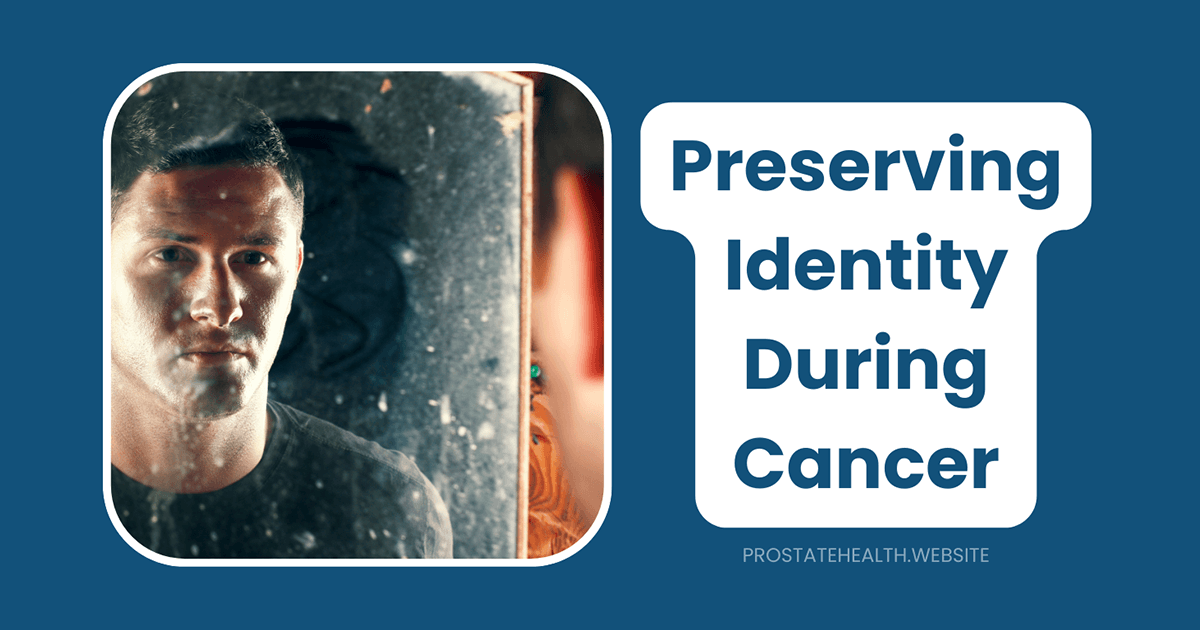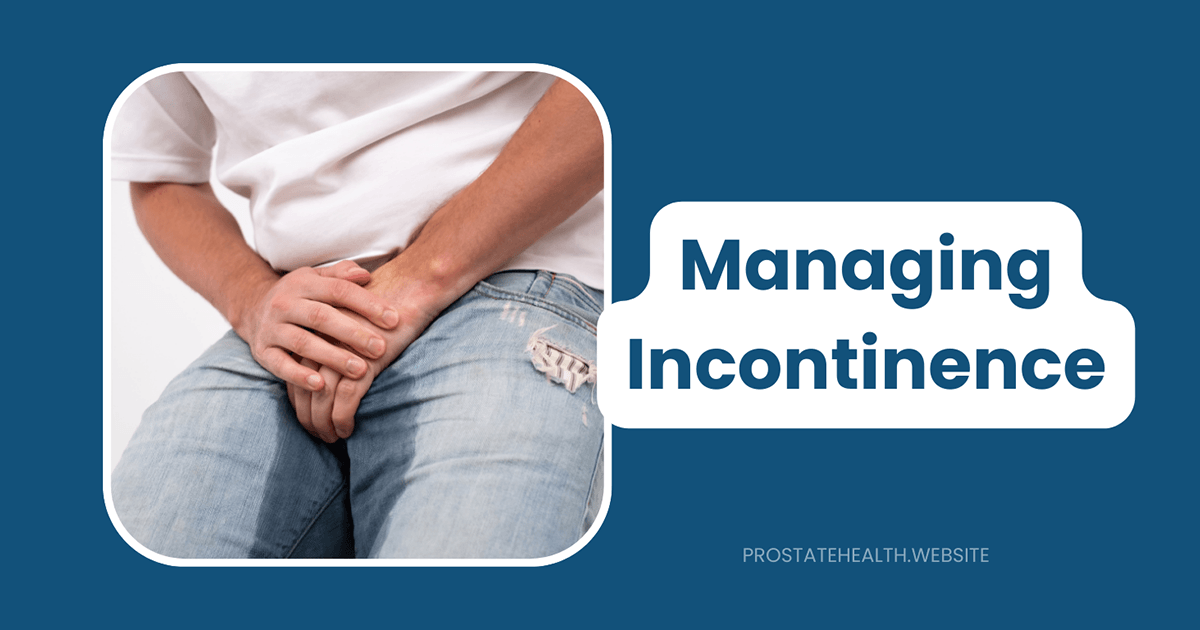Talking to Your Partner About Sexual Changes After Prostate Treatment

When Michael finished his prostate cancer treatment, he thought the hardest part was behind him. Then came the awkward silences in the bedroom, the avoided glances, and the growing distance between him and his wife of 30 years.
“I didn’t know how to tell her that things were different now,” Michael recalls. “I was afraid of disappointing her, and honestly, I was grieving the loss of my sexual function as I knew it.”
If you’re facing similar challenges, you’re not alone. Up to 85% of men who undergo radical prostatectomy report erectile dysfunction, at least temporarily. Changes in orgasm sensation, reduced libido, and other sexual side effects are common after various prostate treatments.
But here’s the good news: couples who navigate these conversations successfully often report that their relationships grow stronger and more intimate. This article will guide you through having these essential but difficult conversations with your partner.
Why These Conversations Matter
Before diving into how to talk about sexual changes, let’s understand why these conversations are so crucial:
- They prevent misunderstandings: Without discussion, partners often make incorrect assumptions about each other’s feelings and needs.
- They reduce isolation: Both partners may be suffering silently, thinking they’re protecting the other.
- They open doors to solutions: Many sexual side effects can be addressed through medical interventions, lifestyle changes, or alternative approaches to intimacy.
- They strengthen emotional bonds: Vulnerability and honesty create deeper connection, even when physical intimacy changes.
As Dr. Anne Katz, a certified sexuality counselor, explains: “The couples who fare best after prostate cancer treatment are those who can talk openly about what they’re experiencing and work together as a team to find new ways to connect.”
Preparing for the Conversation
The thought of discussing sexual changes can feel overwhelming. Here’s how to prepare:
1. Educate Yourself First
Before talking with your partner, understand what’s happening in your body:
- Review information from your healthcare provider about expected sexual side effects
- Read about how prostate treatment affects sexual function
- Consider what treatments might help with erectile dysfunction after prostate treatment
2. Choose the Right Time and Place
The setting matters:
- Select a private, comfortable location
- Choose a time when you’re both relaxed and not rushed
- Avoid having this conversation in bed or right before intimacy
- Turn off distractions like phones and television
3. Set Realistic Expectations
Remember that:
- This will likely be a series of conversations, not just one
- Initial discussions may be uncomfortable
- Emotions might surface unexpectedly
- Solutions take time to discover and implement
Starting the Conversation
Beginning is often the hardest part. Here are some conversation starters that other prostate cancer survivors have found helpful:
- “I’d like to talk about how my treatment has affected our intimate life. Is this a good time?”
- “I miss feeling close to you physically, and I’m wondering if we could talk about how things have changed for us.”
- “I know we haven’t been as intimate lately, and I want you to know it’s because of physical changes from my treatment, not because my feelings for you have changed.”
- “I’m struggling with some changes in my body since treatment, and I could really use your support in figuring out what works for us now.”
James, a 67-year-old prostate cancer survivor, shares: “I finally just said to my wife, ‘I’m scared that our sex life will never be the same, and I don’t want to lose that connection with you.’ Once I admitted my fear, the conversation became much easier.”
Communication Techniques That Work
The Movember Foundation recommends these approaches for more effective communication:
Use “I” Statements
Instead of: “You seem disappointed when we try to be intimate.” Try: “I feel anxious about disappointing you when we’re intimate.”
Practice Active Listening
- Give your full attention
- Avoid interrupting
- Summarize what you’ve heard to ensure understanding
- Ask clarifying questions
Acknowledge Emotions
Both partners may experience complex feelings, including:
- Grief over changes in sexual function
- Fear about the relationship’s future
- Frustration with physical limitations
- Relief that cancer treatment is complete
- Guilt about having sexual concerns after surviving cancer
“It’s completely normal to grieve these changes,” explains Dr. Michael Krychman, sexual medicine specialist. “Acknowledging these emotions is an important step in adapting to your new normal.”
Topics to Cover
While every couple’s conversation will be unique, these topics are important to address:
Physical Changes You’re Experiencing
Be specific about what’s different:
- Changes in ability to achieve or maintain erections
- Differences in orgasm sensation
- Changes in ejaculation
- Alterations in libido or desire
- Any pain or discomfort
Emotional Impact
Share how these changes affect you emotionally:
- Feelings about your masculinity or self-image
- Fears about satisfying your partner
- Grief over lost function
- Anxiety about intimacy
Your Partner’s Experience
Invite your partner to share:
- How they feel about the changes
- What they miss about your previous sexual relationship
- What they value most about intimacy with you
- Their fears or concerns
Robert, whose husband underwent prostate surgery, shares: “I was so worried about pressuring him that I stopped initiating any physical contact. When we finally talked, I learned he felt I wasn’t attracted to him anymore. We were both trying to protect each other and ended up feeling more isolated.”
Exploring Solutions Together
Discuss potential approaches:
- Medical interventions for erectile dysfunction (medications, devices, etc.)
- Alternative forms of intimacy
- Working with a sexual health specialist
- Trying pelvic floor exercises
When the Conversation Gets Difficult
Even with preparation, these conversations can be challenging. When difficulties arise:
Take a Break If Needed
It’s okay to say: “I’m feeling overwhelmed right now. Can we take a short break and continue this conversation later today?”
Look for Common Ground
Remind yourselves of shared goals: “We both want to feel close and connected, even if how we express that needs to change.”
Avoid Blame
Sexual changes after prostate treatment are medical issues, not anyone’s fault.
Consider Professional Support
If conversations consistently become too difficult:
- Ask your urologist for a referral to a sexual health specialist
- Consider couples counseling with a therapist experienced in cancer-related issues
- Look into support groups for couples facing similar challenges
Moving Forward Together
After initial conversations, keep the dialogue going:
Create a Plan Together
- Discuss specific steps you’ll take (medical appointments, trying new forms of intimacy, etc.)
- Set realistic timeframes for exploration and adjustment
- Agree on how you’ll check in with each other about progress
Celebrate Small Victories
Acknowledge positive moments:
- Successful communication about difficult topics
- New forms of intimacy that feel satisfying
- Medical interventions that show promise
- Emotional connections that deepen despite physical challenges
Be Patient With the Process
According to the Prostate Cancer UK organization, adapting to sexual changes after prostate treatment takes time:
- Physical recovery can continue for up to two years
- Emotional adjustment has its own timeline
- Finding new approaches to intimacy is a process of experimentation
- What works may change over time
Real Stories of Connection
Many couples have navigated these waters successfully:
“After my treatment, we had to completely reinvent our intimate life,” says Thomas, 71. “The conversations were awkward at first, but they led us to discover forms of physical connection we’d never explored before. My wife says our sex life is actually better now because we’re more creative and communicative.”
“I was terrified to tell my husband that I still needed physical intimacy even though traditional intercourse wasn’t possible,” shares David, whose partner underwent prostate surgery. “When I finally expressed my needs, he was relieved. He thought I was disappointed in him, when really I just missed our closeness.”
Resources for Additional Support
As you navigate these conversations, remember that help is available:
- American Cancer Society’s Guide to Sexuality After Cancer
- ZERO – The End of Prostate Cancer offers support groups and resources
- Us TOO International provides peer-to-peer support
The Bottom Line
Talking about sexual changes after prostate treatment isn’t easy, but it’s essential for maintaining connection with your partner. These conversations open doors to new possibilities for intimacy and often strengthen relationships in unexpected ways.
Remember Michael from the beginning of this article? Six months after his first difficult conversation with his wife, he reports: “We talk more openly now about everything, not just sex. We’ve found new ways to be intimate that work with my changed body. In some ways, cancer forced us to communicate better than we had in decades.”
Your story can have a positive next chapter too. The first step is simply starting the conversation.






